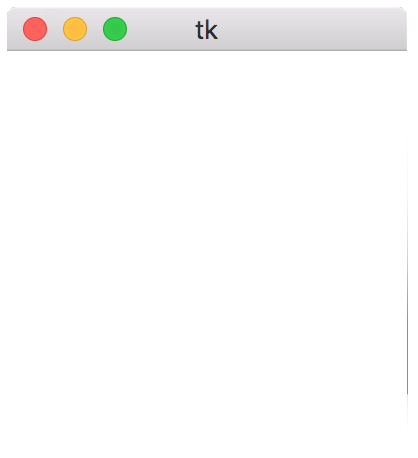Python
The last language you'll need to learn
Justas Trimailovas
VilniusPy 2017-03-15
overview of python's stdlib
Goal
- walk through quite big python's* stdlib with short stops on more interesting parts of it
- no need to reinvent the wheel
- no need for third party dependencies
This is not a comparisson against other programming languages
* python 3.6Why python is great?
It's general purpose, batteries included, desert island programming language *
* David Beazley: Discovering Python - PyCon 2014Built-in types
int, float, complex, str, int, tuple, dict, set...
set
collection of distinct hashable objects
set
# check if list is from the same elements
len(set(humongous_list)) == 1
# compare dicts.
# symmetric difference,
# if items are equal - returns empty set
set(foo_dict.items()) ^ set(bar_dict.items())
# there are more operations: subset, superset, union, etc.
# set comprehension
{user.profession for user in users}
# {'administrator', 'engineer', 'manager'}
Text processing services
string, re, difflib, textwrap, readline, rlcompleter, ...
string
import secrets
import string
# create string with random letters and digits
symbols = string.ascii_letters + string.digits
random_string = ''.join(secrets.choice(symbols) for i in range(50))
print(random_string)
# ugszGgIRBZ9TduZxtpBDyK0Odp6qHyAxDBmBU7s5xpUPGfHAt4
textwrap
import textwrap
s = "Lorem ipsum dolor sit amet, consectetur adipiscing elit."
textwrap.wrap(s, width=8)
# ['Lorem',
# 'ipsum',
# 'dolor',
# 'sit',
# 'amet, co',
# 'nsectetu',
# 'r adipis',
# 'cing',
# 'elit.']
textwrap.shorten("Hello world!", width=10)
# 'Hello [...]'
Data types
datetime, calendar, collections, array, pprint, enum, ...
calendar
import calendar
calendar.monthrange(2017, 3)
# March starts on wednesday and has 31 days
# (2, 31)
calendar.day_name[calendar.weekday(2017, 3, 15)]
# 'Wednesday'
calendar.HTMLCalendar(2017, 3)

collections
namedtuple, OrderedDict, defaultdict, Counter, ...
collections.namedtuple
import collections
Point = collections.namedtuple("Point", ["x", "y"])
p = Point(3, 4)
import math
math.sqrt(p.x ** 2 + p.y ** 2)
# 5.0
collections.defaultdict
import collections
s = [('submit', 'create_instance'),
('delete', 'notify'),
('submit', 'send_email'),
('touch', 'scroll'),]
d = collections.defaultdict(list)
for k, v in s:
d[k].append(v)
sorted(d.items())
# [('delete', ['notify']),
# ('submit', ['create_instance', 'send_email']),
# ('touch', ['scroll'])]
pprint
import calendar
import pprint
pprint.pprint(dir(calendar.HTMLCalendar()))
# ['__class__',
# '__delattr__',
# '__dict__',
# '__dir__',
# ....
# 'firstweekday',
# 'formatday',
# 'formatmonth',
# ....
# 'yeardayscalendar']
Numeric and Mathematical modules
numbers, math, cmath, decimal, fractions, random, statistics
statistics
import statistics
salaries = [100, 114, 180, 200, 205, 240, 1000]
statistics.mean(salaries)
# 291.2857142857143
statistics.median(salaries)
# 200
statistics.stdev(salaries)
# 316.5147254529739
Functional programming modules
itertools, functools, operator
itertools
Infinite:
count, cycle, repeat
Sequence:
accumulate, chain, filterfalse, groupby, ...
Combinatorics:
permutations, product, combinations, ...
itertools.cycle
import itertools
c = itertools.cycle('ABC')
next(c)
# 'A'
next(c)
# 'B'
next(c)
# 'C'
next(c)
# 'A'
itertools.filterfalse
import itertools
# leave uneven numbers
ff = itertools.filterfalse(lambda x: x % 2 == 0, range(10))
for i in ff:
print(i)
# 1
# 3
# 5
# 7
# 9
itertools.groupby
from datetime import datetime as dt
import itertools
# work start and finish log
log = [(dt(2010, 1, 1, 8), 'arrive'),
(dt(2010, 1, 1, 16), 'leave'),
(dt(2010, 1, 2, 9), 'arrive'),
(dt(2010, 1, 2, 16), 'leave')]
g = itertools.groupby(sorted(log, key=lambda x: x[0].hour),
key=lambda x: x[0].hour):
for key, group in g:
print(key, list(group))
# 8 [(datetime.datetime(2010, 1, 1, 8, 0), 'arrive')]
# 9 [(datetime.datetime(2010, 1, 2, 9, 0), 'arrive')]
# 16 [(datetime.datetime(2010, 1, 1, 16, 0), 'leave'),
# (datetime.datetime(2010, 1, 2, 16, 0), 'leave')]
itertools.product
import itertools
for i in itertools.product(['a', 'b'], [1, 2]):
print(i)
# ('a', 1)
# ('a', 2)
# ('b', 1)
# ('b', 2)
functools
import functools
quinary = functools.partial(int, base=5)
quinary('10')
# 5
Engineer = functools.partial(User, profession="engineer")
File and Directory access
pathlib, os.path, tempfile, fnmatch...
pathlib
import pathlib
p = pathlib.Path(__file__)
scripts = p / "scripts"
python_scripts = scripts.glob("*.py")
p.parts()
# ('/', 'opt', 'my_app')
Data persistence
pickle, sqlite3, ...
Data compression and archiving
zlib, gzip, bz2, lzma, zipfile, tarfile
File formats
csv, configparser, ...
configparser
INI like config file parsing
configparser
# config.ini
[network]
port = 8080
[secrets]
pub_key = very_secret
priv_key = supah_secret
configparser
import configparser
config = configparser.ConfigParser()
config.read('config.ini')
config['network']['port']
# '8080'
config['network']['port'] = '1337'
with open('config.ini', 'w') as configfile:
config.write(configfile)
Cryptographic services
hashlib, hmac, secrets
secrets
import secrets
secrets.token_urlsafe(nbytes=8)
# 'Ca8rdNzYQmY'
Generic OS services
os, io, time, argparse, logging, getpass, curses, ...
Concurrency
threading, multiprocessing, subprocess, concurrent.futures, ...
Inter process communication
socket, asyncio, ...
Internet data handling
email, json, mimetypes, ...
Structured markup processing tools
html, xml
Internet protocols and support
cgi, wsgiref, urllib, http, smptlib, ...
wsgiref
# https://docs.python.org/3.6/library/wsgiref.html#examples
from wsgiref.simple_server import make_server
def hello_world_app(environ, start_response):
status = '200 OK' # HTTP Status
headers = [('Content-type', 'text/plain; charset=utf-8')]
start_response(status, headers)
# The returned object is going to be printed
return [b"Hello World"]
with make_server('', 8000, hello_world_app) as httpd:
print("Serving on port 8000...")
# Serve until process is killed
httpd.serve_forever()
urllib
import urllib.request
r = urllib.request.urlopen("http://vilniuspy.lt")
r.status
# 200
http
$ python3 -m http.server
Multimedia
audioop, wave, colorsys
Internationalization
gettext, locale
Frameworks
turtle, ...
turtle
from turtle import *
color("red", "yellow")
begin_fill()
while True:
forward(200)
left(170)
if abs(pos()) < 1:
break
end_fill()
done()
turtle

GUI with Tkinter
tkinter
tkinter
import tkinter as tk
root = tk.Tk()
root.mainloop()

Dev tools
typing, pydoc, doctest, unittest, unittest.mock
pydoc
$ ls
my_file.py
$ pydoc -w my_file
wrote my_file.html
doctest
# times.py
def times2(number):
"""
>>> times2(5)
10
"""
return number * 2
$ python -m doctest times.py
Debugging and profiling
pdb, timeit, ...
pdb
# times.py
def times2(number):
"""
>>> times2(5)
10
"""
import pdb; pdb.set_trace()
return number * 2
timeit
import time
timeit(time.sleep(1))
# 1 loop, best of 3: 1 s per loop
Software packaging and distribution
distutils, venv, ...
Conclusions
Good
- extensive
- general purpose indeed
- check stdlib first before searching for third party libs
- do data processing with
collections, itertools, etc - do CLI, TUI, GUI development
Bad
- unpythonic
¯\_(ツ)_/¯ - hard and cumbersome to use
- third party libraries may be better:
- python ⇨ ipython
- pdb ⇨ ipdb
- urllib ⇨ requests
- argparse ⇨ click
- webdev ⇨ django, pyramid, flask

May 13th, Kaunas